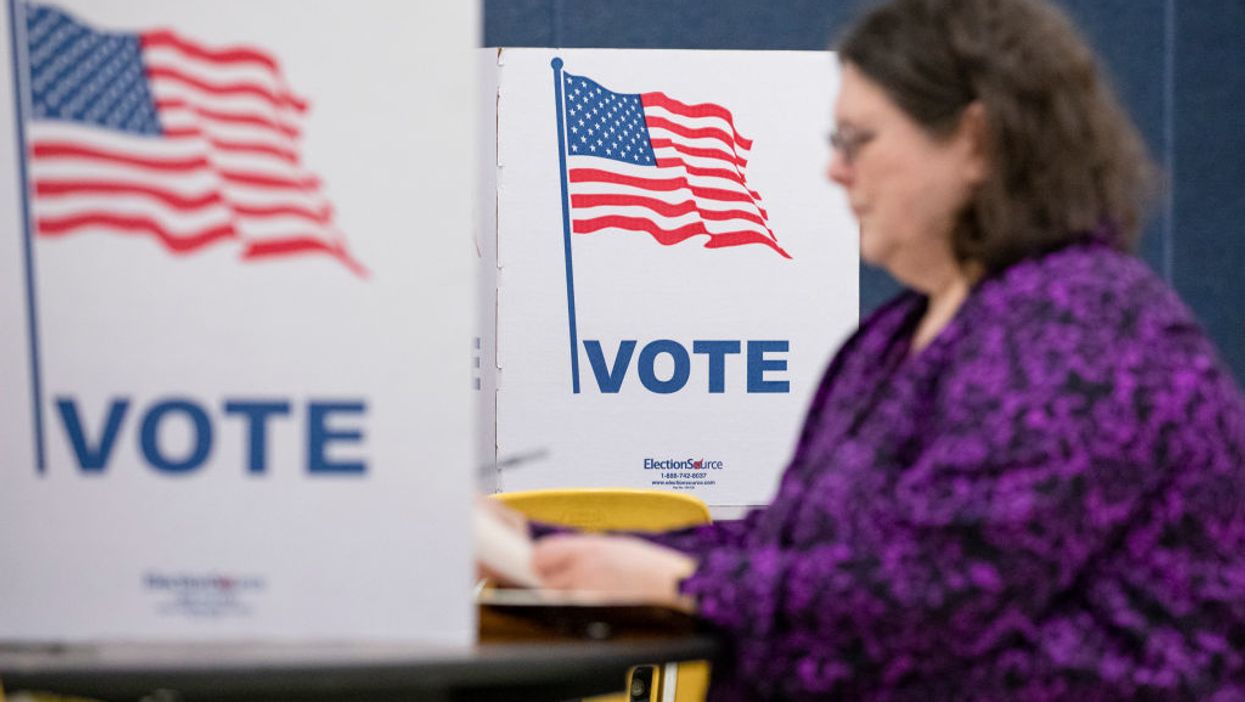Two voting rights lawsuits have paid off quickly for advocates of expanding access to the ballot box in blue-tinged bellwether states where turnout in next month's primaries is already threatened by the coronavirus.
Partial settlement of a federal suit Tuesday means Virginians voting by absentee ballot, at least in the June 23 congressional nomination contests, won't have to find a witness to verify the ballot was filled out by the person submitting it.
Democrats agreed the same day to drop a Nevada court complaint after election officials in Las Vegas agreed to open more polling places for what's supposed to be predominantly vote-by-mail legislative and congressional primaries June 9.
The Virginia case, filed just three weeks agoby the American Civil Liberties Union on behalf of the League of Women Voters, argued the state's witness requirement for mail-in ballots would unconstitutionally force some people to risk Covid-19 in order to vote. They pointed especially to the almost one-third of Virginians older than 65 who live alone, and are in the age group most vulnerable to the virus.
"This settlement is a common-sense solution that protects both public health and democracy," said the ACLU's Davin Rosborough.
But the state agreed to drop the requirement only for the primary, so the suit over the requirement in the general election will continue.
Federal suits challenging similar witness requirements have also been filed in presidential battleground Wisconsin and in South Carolina, which has a handful of competitive congressional contests this year while President Trump has a lock on its electoral votes. Eight other states have similar rules: purple-again-this-year North Carolina, solidly blue Rhode Island and reliably red Alabama, Alaska, Louisiana, Mississippi, Missouri and Oklahoma.
The agreement in Nevada also applies to the primary only, although similar issues could resurface if the public health crisis persists in the state this fall.
Election officials in Clark County, which includes Las Vegas and is home to 72 percent of the state's people, announced several changes to make voting easier in the primary — issues raised in a lawsuit also filed just three weeks ago.
The county has agreed to add two additional polling places, where only one had been planned; to proactively send mail-in ballots to all registered voters, including those listed as inactive on the rolls; to revise the way signatures on the ballots are compared with those in election records; and to notify voters in a timely way if their ballot is being rejected because of a signature matching issue.
The changes were almost everything sought by the plaintiffs (several Democratic campaign organizations and the progressive advocacy group Priorities USA) and so they withdrew their suit. But they urged the other 15 counties — especially Washoe, which is home to the 15 percent of the state living in and near Reno — to adopt the same changes.
The state is trying to get as many people as possible to vote remotely, a fundamental switch in a state where just 10 percent of the ballots two years ago were mailed in. And, despite the health benefits, the Democrats are worried too many people will still head out to the polls.
"These changes will undoubtedly make it easier for thousands of Nevadans who wish to vote by mail to cast their ballot," said Marc Elias, the attorney at the center of the Democratsic lawsuit strategy.




















Trump & Hegseth gave Mark Kelly a huge 2028 gift